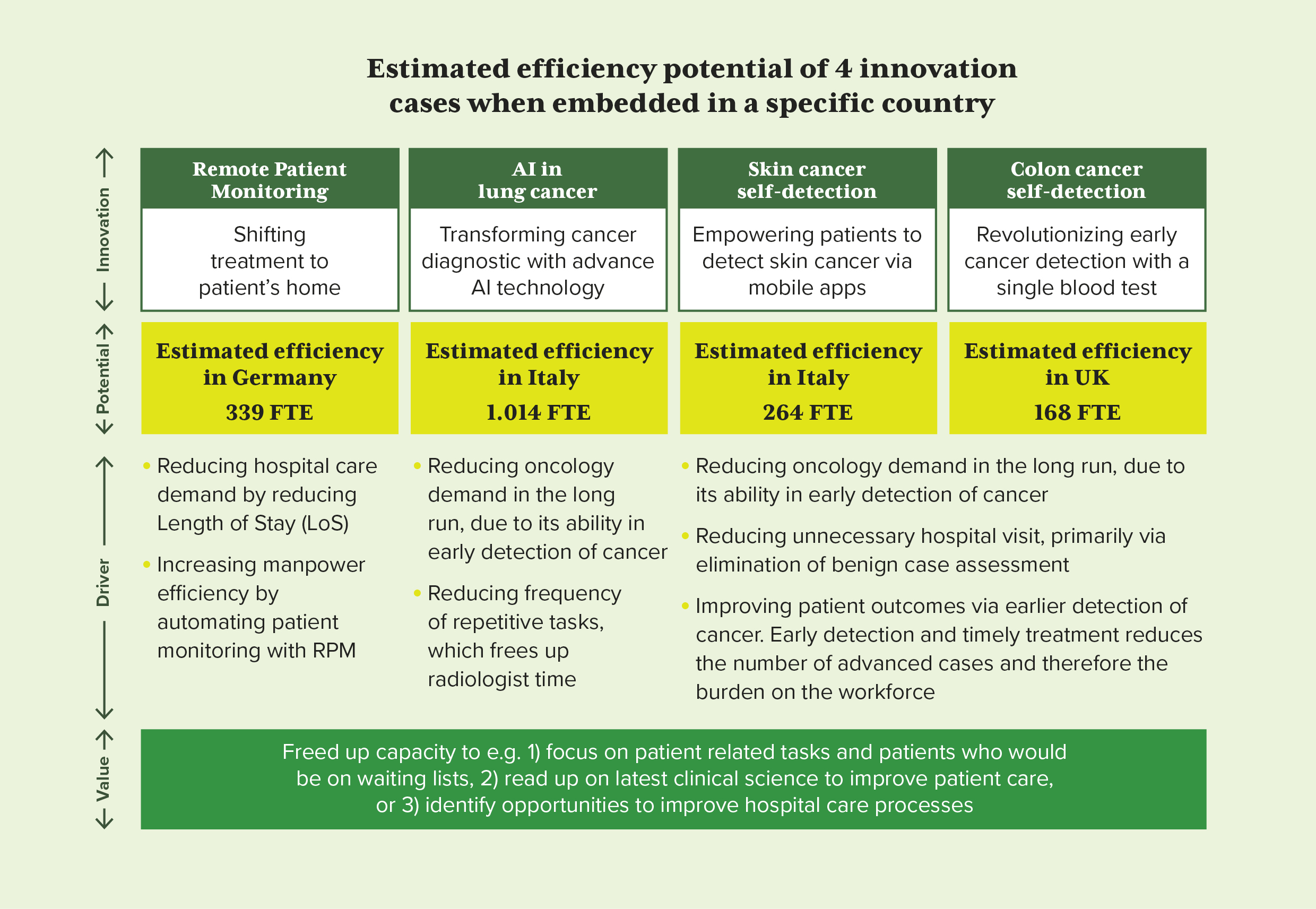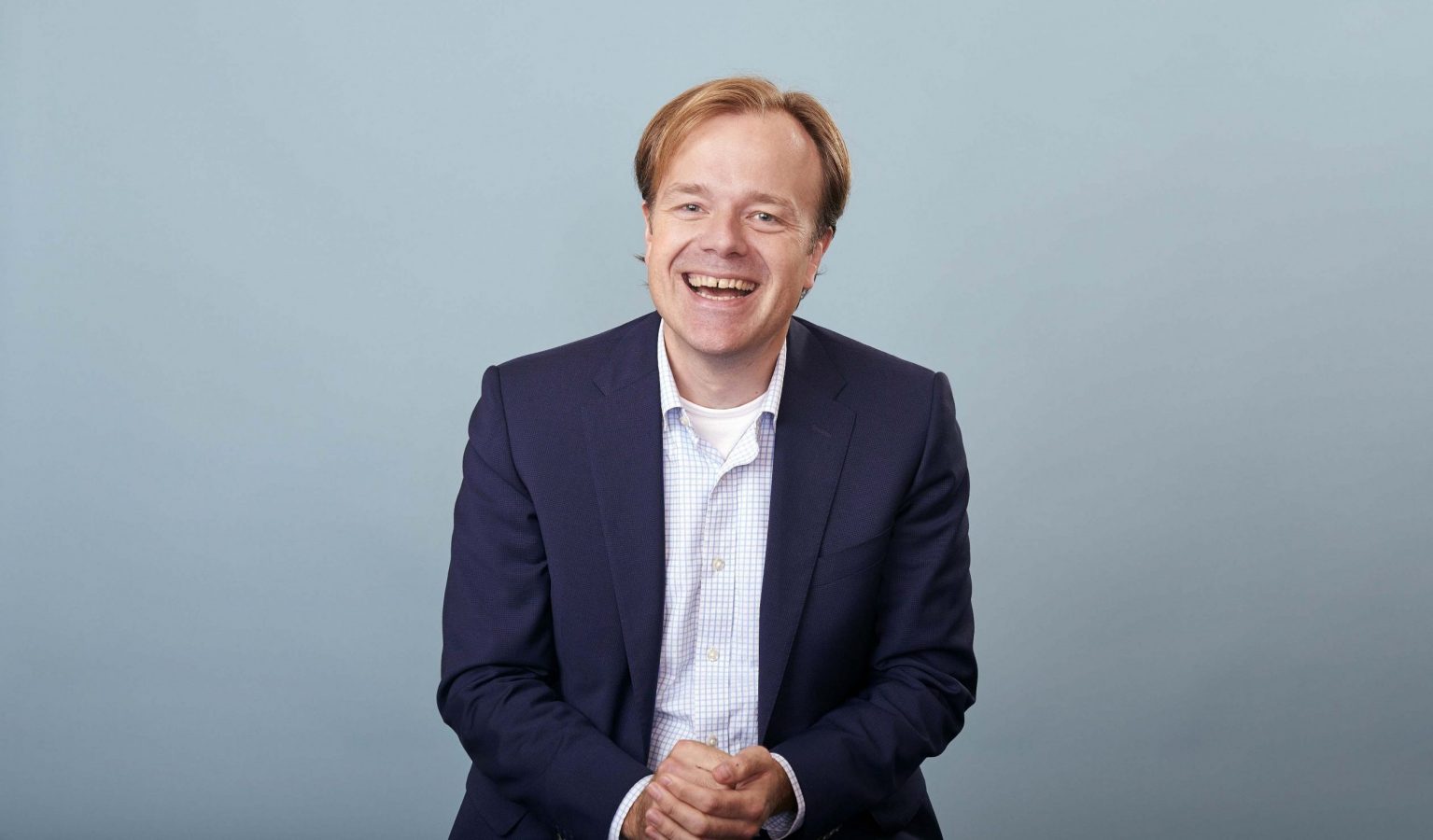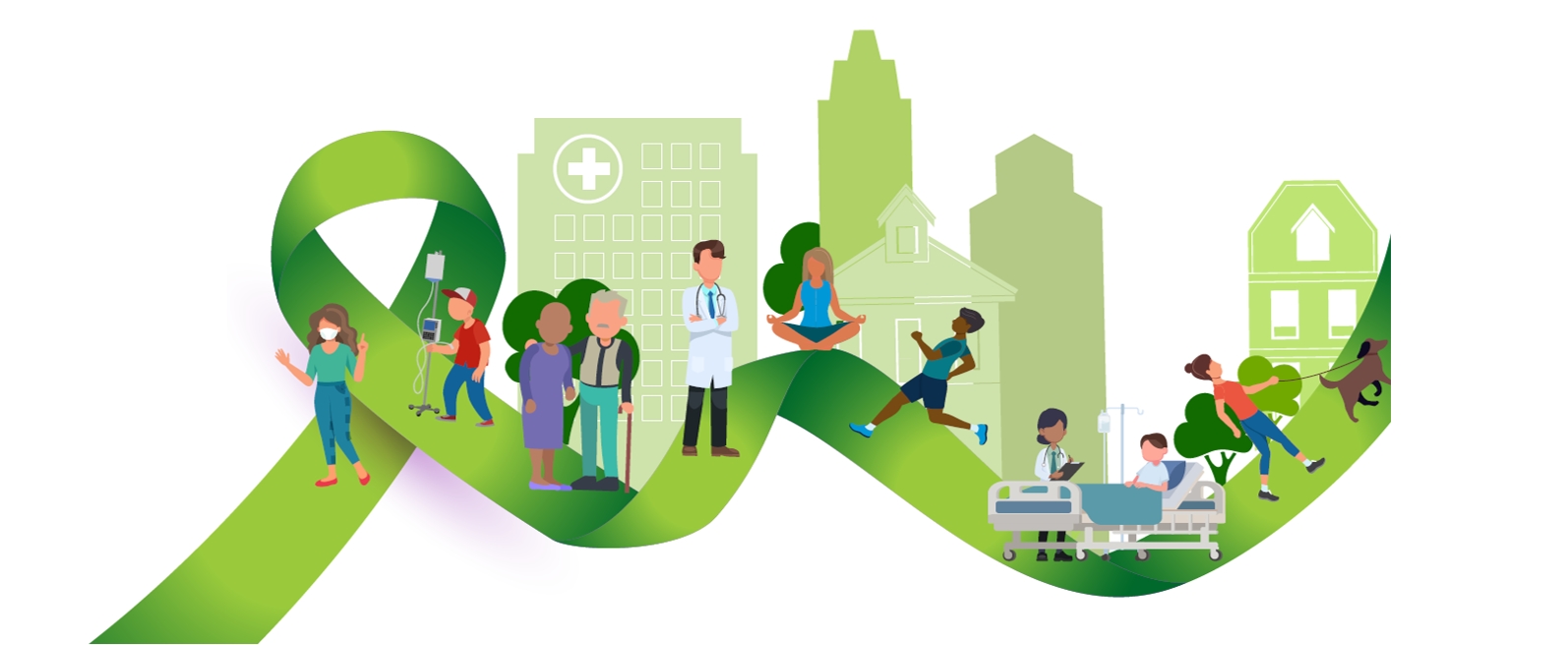Addressing urgent workforce shortages in Cancer Care innovation
With five new cancer patients diagnosed every minute in Europe, experts estimate that the region will see a shortage of 4.1 million healthcare workers by 2030. This will put significant pressure on oncology care, resulting in delayed diagnoses and poorer health outcomes for patients, more pressurised staff and the subsequent impact on mental health, and as well as an increasing number of staff shortages and longer waiting lists – all impacting on the ability to provide stable cancer services and putting at risk the Europe Cancer Mission goal to save 3mio lives by 2030.


root causes driving the gap
In this report we describe three root causes driving the gap between the needs of European patients and the capacity of the cancer care workforce to deliver:
- European populations are growing and ageing, increasing demand for services
- Productivity in healthcare is not increasing in contrast to other industries
- The healthcare workforce is not growing with demand for oncology care
It also shows how Covid-19 has exacerbated the issues, for example, through delayed access to screening and diagnosis for patients. For staff, the pandemic also meant that the effort and time it took to treat patients increased, with staff also facing the challenges of high infection rates and burnout.
Innovation can make cancer care more sustainable. And there is a critical need to make cancer care more sustainable.
We identified ten case studies of innovative practice in cancer care across Europe, which if adopted at scale could bring substantial benefit to patients and health systems in all Member States. Of the ten case studies, four were selected to analyse the potential to scale up and roll out these practices more widely, and the benefits for patients and health professionals.These include:
- Huma – Remote Patient Monitoring (Germany): Shortening the post-surgery length of stay for colorectal cancer patients through RPM has the potential to significantly lighten nurse workload.
- Qure.ai – artificial intelligence diagnostics (Italy): The application of Artificial Intelligence (AI) in lung cancer screening has the potential to reduce radiologist workload by 15%.
- SkinVision – self-screening tests (Germany): SkinVision can reduce unnecessary visit to GP or dermatologist and empowering early detection of skin cancer through advanced home image analysis.
- ColoAlert – Remote diagnostics (UK): Used to reduce the overuse of colonoscopy and unnecessary visit to hospital using self- diagnostics tool.
Innovation is the key to redesigning cancer care.
Innovation holds the potential to reduce oncology demand, increase care efficiency, and retain healthcare workers to ensure our healthcare system is able to deliver the care that we need to deliver. Only by redesigning the way in which we deliver cancer care, we can allow for ongoing advances in patient outcomes, continued improvements in long-term affordability of and equal access to quality care. We believe the time has come to take a fresh look at cancer care. We believe in the power of innovation and collaboration to transform cancer care for the benefit of all.
THIS REPORT IS EXPLICITLY ENDORSED BY THE FOLLOWING ORGANISATIONS:
- Acute Leukemia Advocates Network
- All.Can International
- Digestive Cancers Europe
- EIT Health
- Europa Uomo EU
- The European Association of Hospital Pharmacists – EAHP
- European Cancer Patient Coalition
- European Federation of Pharmaceutical Industry Associations (EFPIA)
- EUREGHA
- EVITA – Cancro Hereditário
- Lymphoma Coalition
- The Netherlands Cancer Institute
- SPCC (Sharing Progress in Cancer Care)
- Delft University of Technology
This report was commissioned and financed by the EFPIA Oncology Platform.

